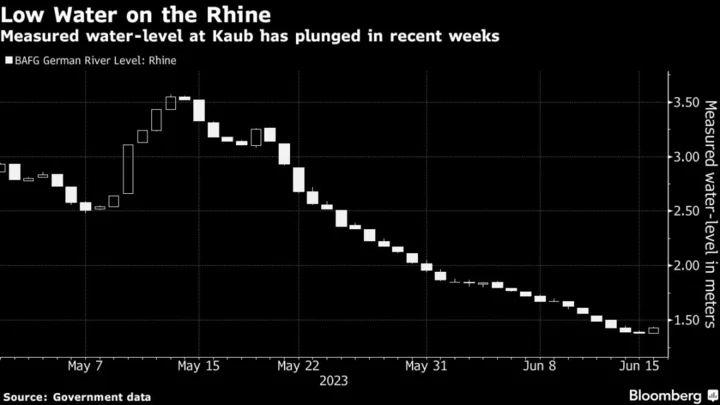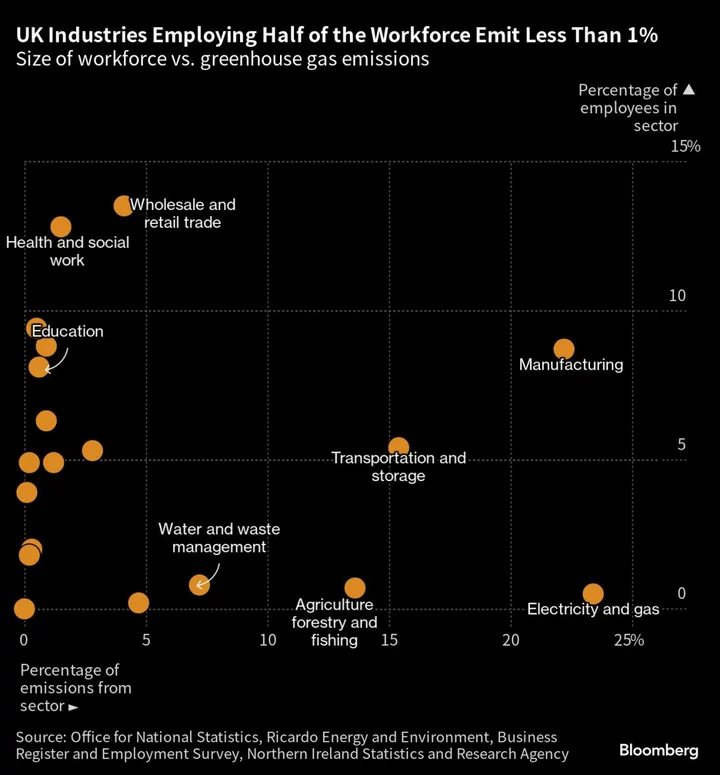The German summer may officially be just two weeks old but the Rhine river — a vital artery for the country and other parts of inland Europe — is already seeing water levels low enough to restrict trade.
The measured water-level at Kaub, a key chokepoint, stood at 1.43 meters on Friday afternoon, government data show. It’s forecast to slump 16 centimeters more by early Tuesday morning. That’s well below the seasonal norm, although far from the low-point of last August, when the measure hit about 30 centimeters and brought widespread disruption.
Even so, any barges planning on hauling diesel-type fuel past Kaub have been limited to loading just 60% of their maximum carrying capacity, according to Mitchell van der Hoeven, a broker at Riverlake, which organizes shipments up the river. That’s potentially restricting supply to upriver importers, including Switzerland.
Winding hundreds of miles from the Alps to the North Sea, the Rhine is used to transport millions of tons of oil products and other vital commodities across Europe, including gravel, coal and iron ore. Last year, the water got so low that trade was severely disrupted, affecting oil refining, power generation and more.
“I expect this August onwards to be worse than last year,” van der Hoeven said.
Shallow water
Already this year, the euro-per-ton price for shipping fuel on the river by barge has soared, with the current cost of transporting between Karlsruhe in southwest Germany and the Netherlands close to double the five-year average.
“For the last week in June, we expect some rainfall which probably could stop the downward trend of the water-levels, at least temporarily,” said Dennis Meissner, a forecaster at the German Federal Institute of Hydrology. He doesn’t expect to see “critical flow conditions” until at least the end of July.
The Rhine is typically at its lowest in the August-November period, he said, adding that the outlook is uncertain and dependent on rainfall and temperature levels in summer.









